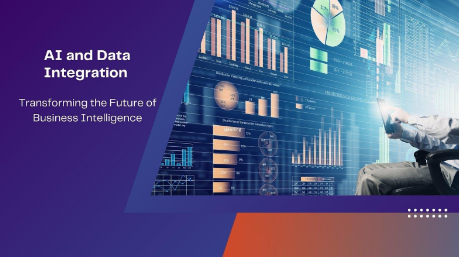
The integration of Artificial Intelligence (AI) with data processes is revolutionizing how businesses harness and interpret data. In this data-driven era, Raghavendra Sreenivas Murthy delves into how AI’s advanced capabilities are transforming traditional data integration, enabling real-time analytics, and enhancing data governance. By automating complex tasks and uncovering deeper insights, AI empowers organizations to move beyond reactive decision-making. Murthy’s exploration highlights the evolving landscape of business intelligence, where AI not only streamlines operations but also opens new frontiers for predictive analytics, operational efficiency, and data security, shaping a more agile and intelligent business environment.
The Evolution of Data Integration
Traditional data integration methods, often relying on manual processes and rigid frameworks, are increasingly inadequate amid today’s explosive data growth. AI technologies like machine learning and Natural Language Processing (NLP) have revolutionized this landscape by automating complex tasks such as data mapping, transformation, and cleansing. This automation reduces the labor-intensive nature of traditional integration, allowing organizations to manage vast and diverse datasets more efficiently, thereby addressing scalability and reducing errors. AI’s impact goes further, introducing intelligent data discovery, adaptive integration, and semantic understanding. These advancements enable organizations to extract valuable insights from integrated data sources, streamlining operations and fostering a new era of data-driven decision-making. This transformative shift not only improves efficiency but also opens up innovative possibilities for strategic business intelligence.
Real-Time Data Integration and Analytics
The demand for real-time data integration has surged with the proliferation of data from sources like IoT devices and social media platforms. AI has become pivotal in managing these high-velocity data streams, enabling real-time analytics that support agile decision-making. AI-driven systems excel at detecting patterns and anomalies within integrated data streams, making manual analysis of vast data volumes impractical. This capability is crucial in domains like cybersecurity, where AI identifies and responds to threats in real-time. Additionally, AI-powered integration allows organizations to shift from reactive to proactive decision-making. Retailers, for example, use AI-driven analytics to monitor consumer behavior and dynamically adjust pricing and inventory, resulting in up to a 10% increase in sales and a similar reduction in inventory costs.
Enhancing Data Governance with AI
Data governance is crucial in today’s digital age, as data privacy regulations become increasingly stringent. Traditional manual approaches are inadequate to handle the growing complexity and volume of data. AI is revolutionizing this domain by automating policy enforcement, data lineage tracking, and compliance monitoring. AI-driven tools can automatically classify data, detect unauthorized access attempts, and dynamically adjust access controls based on user behavior. They also provide real-time tracking of data flows across complex environments, ensuring data integrity and compliance. This advanced form of data governance significantly enhances organizations’ ability to maintain control over their data assets while minimizing risks, offering a more robust and efficient approach to managing and protecting sensitive information.
Unlocking Future Potential
The future of AI in data integration is poised for transformative growth. As AI algorithms evolve, they will offer more advanced pattern recognition, automated data discovery, and semantic understanding. This progress will empower businesses to derive deeper insights from complex, multi-source datasets, significantly improving decision-making capabilities. AI-driven real-time analytics will become a cornerstone of business strategy, enabling predictive and prescriptive analytics to anticipate future trends and recommend optimal actions in real-time. In some cases, AI systems will autonomously execute decisions, reducing human intervention and streamlining operations. This automation will enable businesses to respond swiftly to market changes, emerging opportunities, or potential threats, fostering a more agile, data-centric approach to organizational growth and competitive advantage.
Raghavendra Sreenivas Murthy‘s insights into the transformative impact of AI on data integration highlight a future where businesses can unlock unprecedented opportunities while ensuring robust data security and compliance. By automating complex tasks and enhancing real-time analytics, AI not only streamlines operations but also drives a more intelligent and agile business landscape. As AI technologies continue to mature, they promise to redefine data management, making it more efficient, adaptable, and insightful. This evolution represents not just incremental improvement but a revolutionary leap toward a future where data-driven decision-making becomes the cornerstone of competitive advantage.








